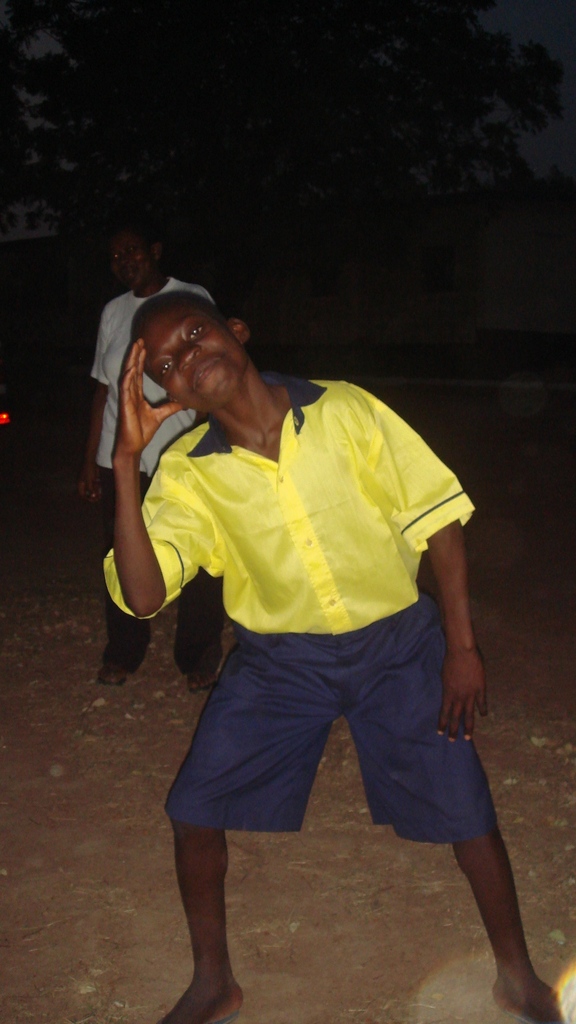By Slava Madorsky | Project and Donor Liaison
The Counter Trafficking Unit of IOM’s Mission in Ghana rescued a group of 36 children from fishing villages in Krete-Krachi in the Lake Volta Region of Ghana this month, bringing the total of trafficked children rescued by IOM to 648. IOM’s partner NGO, Partners in Community Development Programs conducted research in Kete-Krachi and its island communities in preparation for the rescue mission and registered the children and the fishermen.
Throughout 2007, IOM identified and registered 424 trafficked children working for 800 fishermen on five islands around Kete-Krachi. Although all of these children are available for rescue, IOM’s resources only allowed for 36 to be rescued at this time. IOM usually conducts rescue missions on an annual basis, but has the capacity to rescue at least 50 children every six months if the necessary funds are made available. The children who are not rescued are under constant monitoring, and the fishermen continue to receive education on the use of children for this dangerous type of work. “We can only hope that this increased awareness will translate into better working conditions for the children waiting to be rescued,” explains Eric Peasah, IOM’s Counter Trafficking Project Manager. “These children need our help as soon as possible, so we are continuing our appeal for funding to rescue all of them.”
This latest IOM rescue mission was carried out from 19 to 22 January with financial support from the U.S. Department of State, Bureau of Population, Refugees, and Migration (PRM) and more than 1,000 private donors.
The children were rescued in two groups and sent to the Department of Social Welfare’s rehabilitation centre in Accra. The first group of 24 children arrived at the center on 23 January, while the second group of 12 arrived at the end of January, as they were rescued from different locations. At the rehabilitation center, the children will be medically screened and treated as needed, and will undergo a comprehensive rehabilitation program with support from health professionals, social workers, psychologists and educators. They will also have access to psychosocial counseling to enable them to heal from the trauma of being trafficked. The rescued children will receive rehabilitation assistance until 15 May when they will be reunited with their families to start their reintegration process.
Among the trafficked children rescued this time is 12 year old Kwadzo who hails from Dogo, a small community near Apam in the Central Region. Kwadzo had been working in the fishing industry for five years. When he was seven years old, Kwadzo’s father took him to Abidjan in Cote D’Ivoire, where he was given to a fisherman to work for a period of two years. According to Kwadzo, during his stay in Abidjan he went fishing for long hours, ate only once a day, and was often mistreated. After more than two years, his father brought him back to Dogo. Kwadzo’s grandmother pleaded with the father to send the boy to school but instead he took him to Kete-Krachi where he was handed over to a fisherman on Lake Volta.
Kwadzo told IOM that his life in Kete-Krachi was even more difficult than in Abidjan because he often had to dive to the bottom of the lake to disentangle nets that were caught on tree stumps, a dangerous chore that he was not required to do in Abidjan.
Kwadzo, was not on the list of children to be rescued this year, but on 20 January, while on the lake around 5:30am, IOM staff saw a fisherman working with a boy. The boy was diving in and out of the water and shivering from the cold. The IOM staff approached the fisherman and attempted to negotiate Kwadzo’s release, but the fisherman refused. IOM reported the incident to the Chief of the village, who has received awareness training and is an advocate of the IOM project. The father and the fisherman begrudgingly released him the next day.
Kwadzo will be sent to live with his mother and will now have the opportunity to go to school. He says he is very happy IOM came to his rescue and he wants to go to school so he can become either a driver or a football player.
By Jennifer Asuako | Senior Project Assistant
Project reports on GlobalGiving are posted directly to globalgiving.org by Project Leaders as they are completed, generally every 3-4 months. To protect the integrity of these documents, GlobalGiving does not alter them; therefore you may find some language or formatting issues.
If you donate to this project or have donated to this project, you can receive an email when this project posts a report. You can also subscribe for reports without donating.

